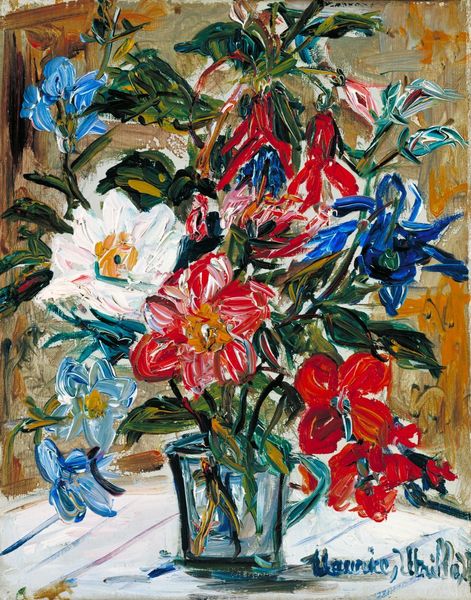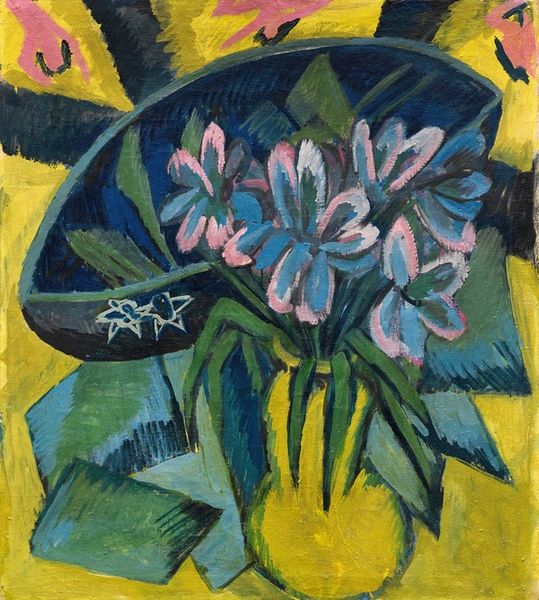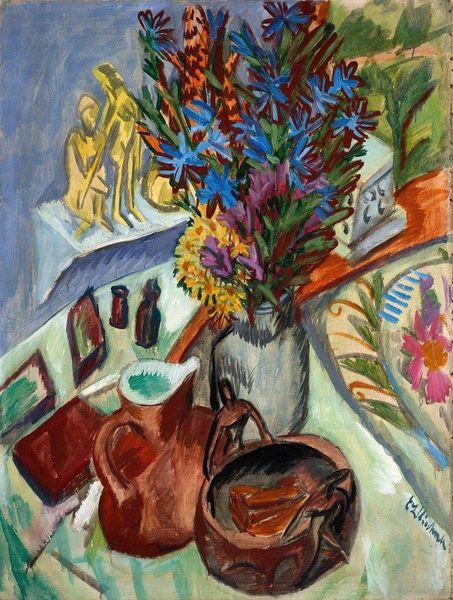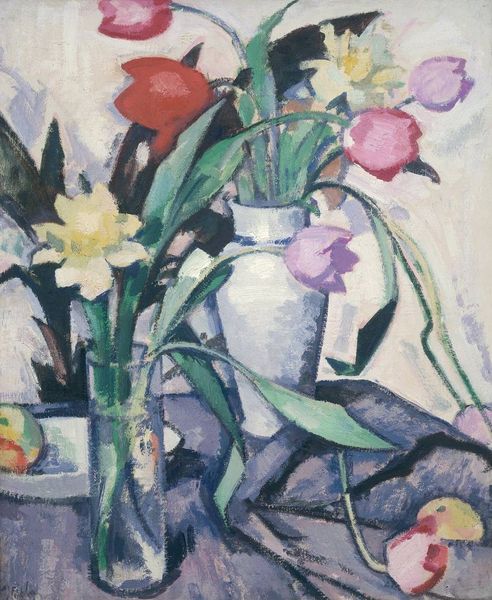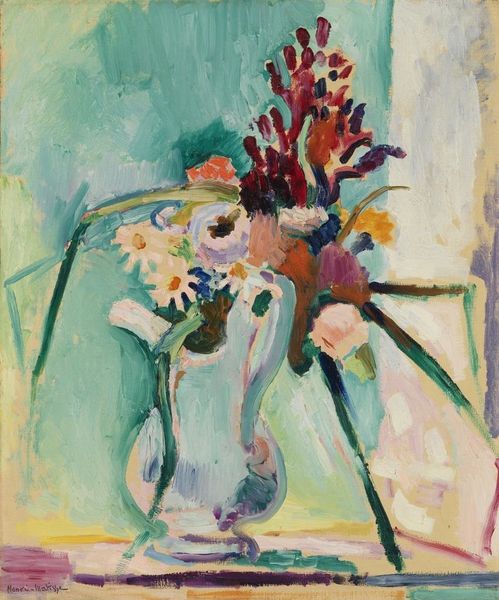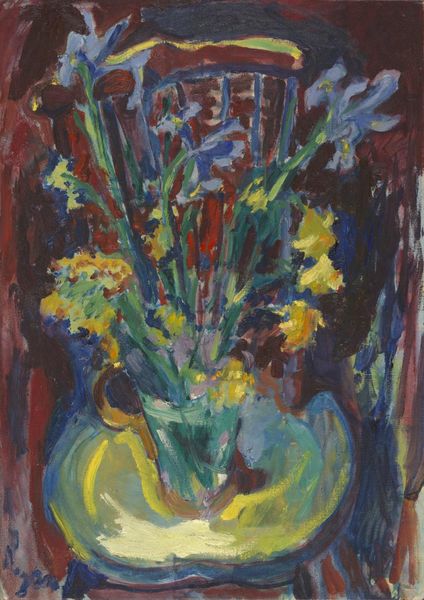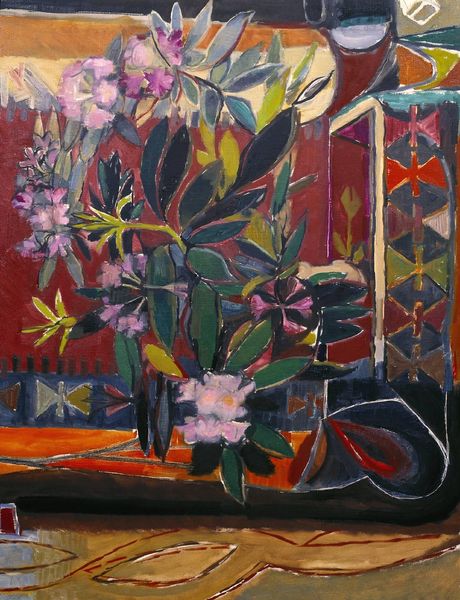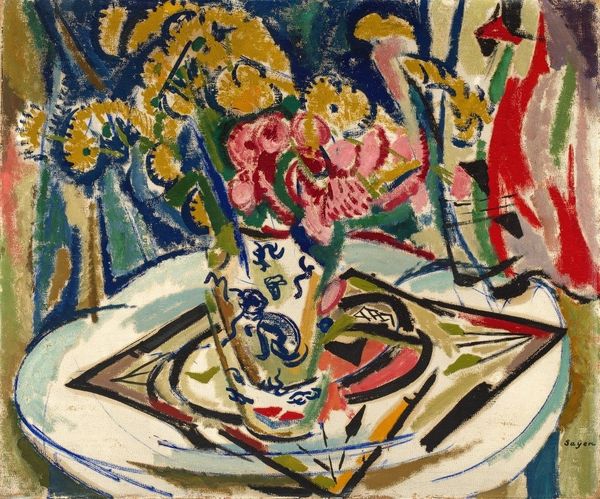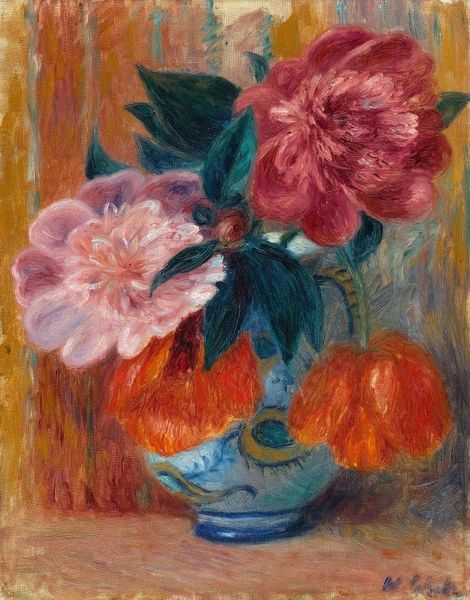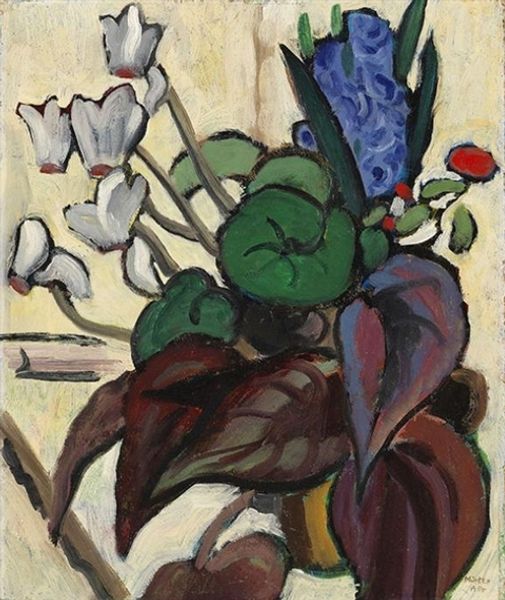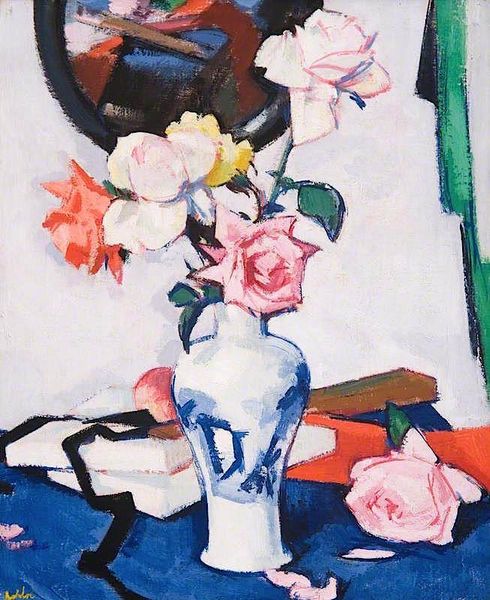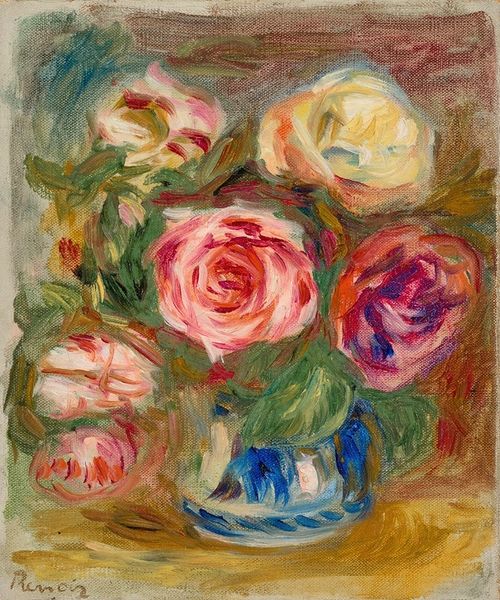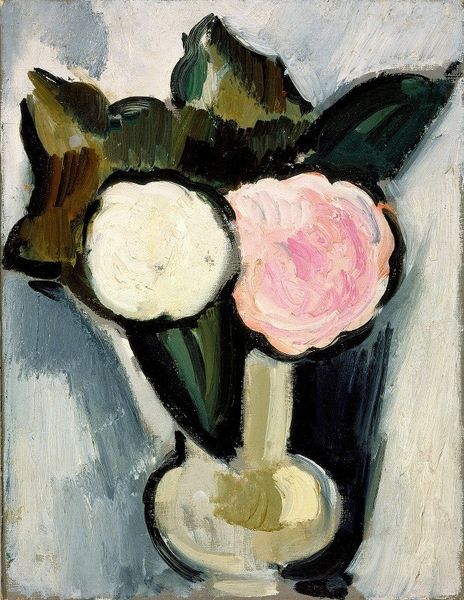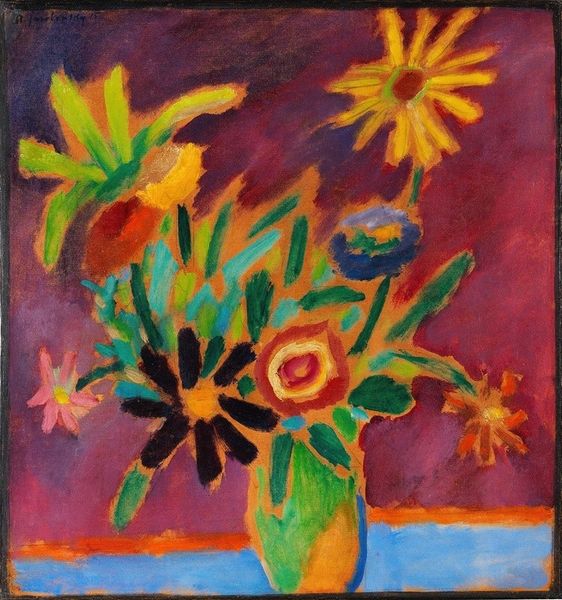
Copyright: Public Domain: Artvee
Curator: Standing before us is Ernst Ludwig Kirchner's "Pink Roses," painted in 1918 using oil paint. Its vibrant hues just leap out, don't they? Editor: They do! I am immediately struck by the bold color choices, especially how the blues clash, yet also somehow harmonize, with those punchy pinks and yellows. It feels… charged. Curator: Charged is a good word. Kirchner, as a leading figure in German Expressionism, certainly knew how to imbue his works with raw emotional intensity. Consider that backdrop--almost suffocating in its darkness compared to the vibrancy of the roses. Editor: That deep teal pulls me in like a subconscious realm. The flowers become a symbol here of fleeting beauty, courageously holding its own. Roses as classic iconography is linked to notions of romantic love, but something in this execution seems laced with a fragile, perhaps even tortured quality. Curator: Exactly! It was painted during a particularly difficult time in Kirchner's life, recovering from a mental breakdown related to his WWI experiences. There’s almost a sense of defiant joy radiating out of these blooms despite the darker undertones. Do you see hints of Fauvism influencing him too? Editor: Absolutely. I can see the influence in the unnatural colours, expressive brushwork. They are not true roses as we understand them, and these objects possess an exaggerated symbolism. This lends a decorative quality to the scene. Curator: This might also explain the fruit, especially the swirling effect on the lemons in the bowl? As though, he is saying, 'these are what lemons ARE - zest and acidity". What an alchemic experience, transmuting trauma into… oddly serene art! Editor: Well said, to distill raw emotion into something so… delicately fierce speaks volumes. The pink roses, almost bravely asserting themselves against that emotionally loaded background; a perfect example of a painter externalizing their internal world with striking beauty. Curator: Thank you! I concur. Its enduring beauty really makes this piece memorable and so worthy of reflection.
Comments
No comments
Be the first to comment and join the conversation on the ultimate creative platform.
